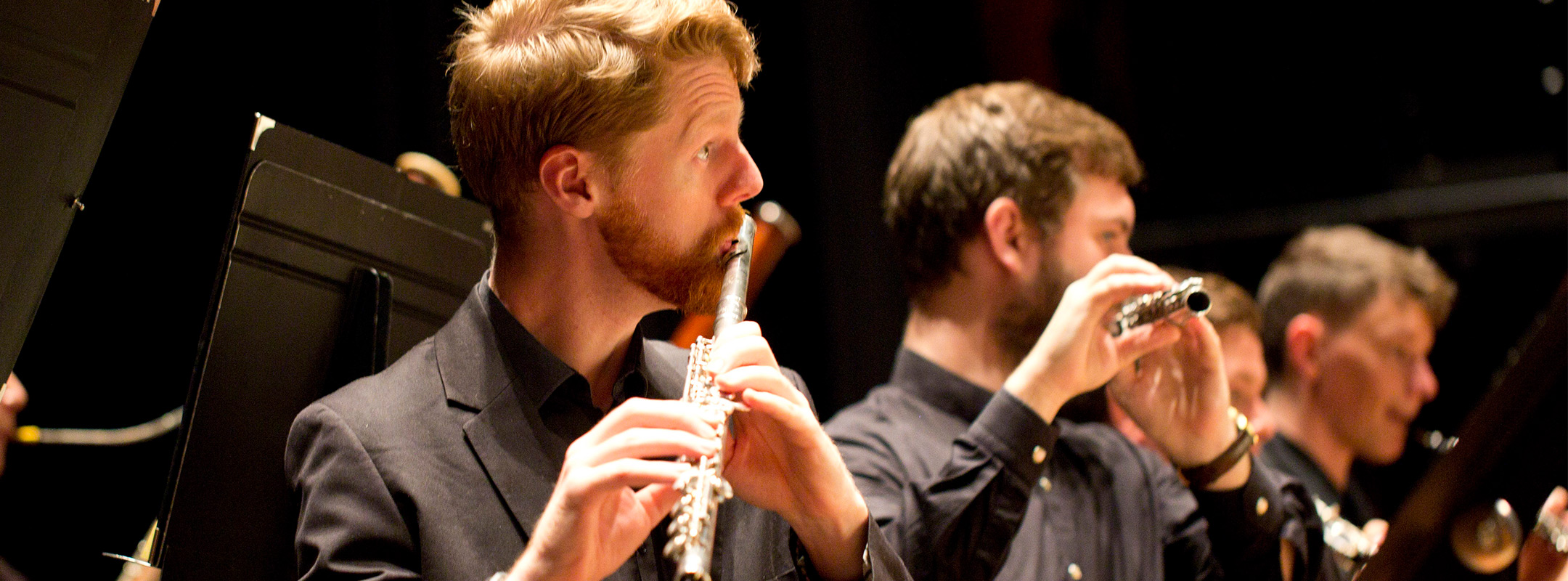
flute
It’s now been about 10 years since I first learnt Ibert’s Flute Concerto for a competition back home in New Zealand. In fact, I’ve still got the comments sheet from the judges. Back then I could just about get around the notes, so it’s nice to return to the piece with a bit more control and maturity.
I think I understand it better than I did before - or at least I hope so. It’s one thing to be able to play the notes and another to understand how the piece is put together, and how everything relates to everything else. I’ve now got a better understanding of even the most basic things, like phrasing or where the pinnacle of a movement sits.
To flautists, the concerto is perhaps best known because it’s very demanding and technically challenging. But why is it special? For me, it’s very French in that the music is light-hearted. It’s not serious like a Bruch or a Tchaikovsky Violin Concerto; it’s up in the air, with virtuosity coming both from the flute and the orchestra. It feels like a conversation between the two because for a good amount of time it’s actually the flute accompanying an instrument in the orchestra. In the second movement, for example, the first violin has a massive solo for most of a page and the flute is twiddling around it in the background. The concerto is also quite jazzy at moments, especially in the last movement. It’s a lot of fun to play and really exciting.
It’s also not without challenges: while it doesn’t feature a lot of extended techniques or anything that’s really ‘out there’, you have to have a lot of control of articulation and breathing. In fact, breathing is a massive issue in the second movement because it has these very, very long phrases which are often quite loud and so you get through the air fast. This is something that’s quite specific to playing the flute in a concerto, having to use a lot more air to make sure you’re at the forefront of the orchestral sound. Finding a balance between how loud or quiet both myself and the orchestra need to play will be one of the biggest adventures in performing this piece.
Ibert wrote the concerto for Marcel Moyse, a great flute virtuoso and teacher. He was a really big deal then, and even now we still play his warm ups and studies as core elements when learning the flute. There’s an apocryphal story that I like to think about when preparing this piece, that Ibert had written the first and last movement but found himself stuck with what to do in the middle movement. Sometime later, Ibert’s father died, and that was the trigger for completing the concerto. The second movement is very lyrical, with long phrases and more profundity about it. I don’t know if that comes directly from his loss, but I find it helpful to think about it in that way. It’s not an especially sad or poignant movement, but I think there’s some genuine outpouring in there. There’s a lot of heart in it.
I’m also looking forward to the chance to play a concerto with an orchestra again. My one previous opportunity showed me just how different an experience it is to rehearsing or performing with a piano accompanist. With the piano, you’ve one person who can respond immediately to whatever you do; with an orchestra it just doesn’t work like that, it’s a much more complex machine. One of the challenges I’m looking forward to is therefore trying to keep a certain level of spontaneity while still bearing in mind that there’s 30 people and a conductor who have to react to what you’re doing, and the slight time lag that comes with that. It means it’ll be a fresh, collaborative performance - and that opens up all kinds of opportunities to pull of something I hope will be exciting.
Find out more about Hugues here
Come hear Hugues play Ibert's Flute Concerto at our Rush Hour Concert on Thursday 18 July.
Get your free ticket here